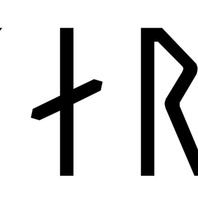
Viking Names
Sumarlidi
Sumarliði is originally a byname meaning ‘summer-traveller’. Although it has also been suggested that it is a variation on Vetrliði ‘a bear in its second year’, the close association of the name with the Viking diaspora supports the ‘summer-traveller’ meaning. These names likely arose in the Atlantic islands as there is one instance of Sumarliði from the early tenth century attributed to a man of Scottish birth, and several from the time of settlement in Iceland (c. 870-930). It does not appear until late in Norway, but there are several instances after c. 1320. The name is found in runic coin legends as the name of a moneyer operating in the Danish town of Lund between 1065 and 1075 – many of the moneyers in Lund actually came from England, where the name is relatively common. Sumarliði is also found in a place-name in Normandy. Sumarliði is the first element in three instances of the place-name Somerby, and one of Somersby, Lincolnshire, and the name is also frequently reported independently as a personal name in Domesday Book for Lincolnshire.
Read More
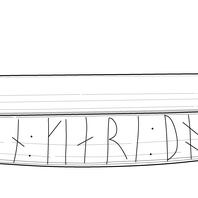
Viking Designs
Drawing of the Thorfast Comb Case
A bone comb case with a runic inscription which reads ‘Thorfast made a good comb’. It is unknown whether the runes were inscribed by Thorfast himself as advertising, or whether the owner inscribed them to remind them where to go for another good comb if they needed one.
Read More

Viking Names
Gunngifu
Gunngifu is a postulated Anglo-Scandinavian hybrid female personal name formed from the very common Old Norse element Gunn- from gunnr, guðr ‘battle’ combined with the Old English element gifu ‘gift’. There is a possible attestation of the name in a medieval document from Lincolnshire.
Read More

Viking Names
Toki
Tóki is either a short form of names in Þórkell or possibly a pet-form of name in Þór- ‘the god’s name Þórr’ with the addition of the suffix -ki. The name is very common in Denmark where it is found in many place-names. It possibly spread to Norway and Sweden from Denmark. It is fairly common in Sweden in the forms Toke and Tuke and in Norway from the eleventh century onwards, but it is very rare in Iceland. In Normandy it is probably found as the surname Tocque and occurs in a number of place-names there. The personal name is also the first element in Tugby, Leicestershire.
Read More
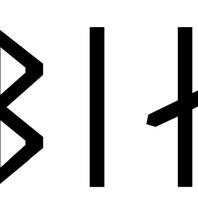
Viking Names
Asbjorn
Ásbjǫrn was a common name in Norway from the time of the settlement of Iceland (c. 870-930) onwards, and is common in Swedish and Danish runic inscriptions. Forms in Æs- are very common in Denmark and a few runic forms likely represent these spellings. Additionally there are numerous instances of the form Osbern found in Normandy which are possibly loans from England. It is a Old Norse compound name with the first element, Ás-, from Old Norse ás, óss ‘a god’, combined with bjǫrn, ‘bear’. It was common for Viking Age Scandinavian personal names to use animals as name-forming elements. Several place-names in Lincolnshire and Yorkshire may include the Low German male personal name Osbern, although the name is more likely to be an anglicised form of Old Norse Ásbjǫrn, as in Osbournby in Lincolnshire, and the name is also recorded in medieval documents from both Lincolnshire and Yorkshire.
Read More
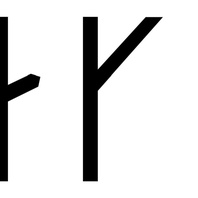
Viking Names
Aki
Áki is probably a diminutive of *ani, an unrecorded word related to Old Norse ái ‘great-grandfather’. The name is frequent in Denmark both independently and in place-names and likely originated in the Danish islands. It is also frequent in Sweden, but does not appear in Norway until about 1300. It is found in one Normandy place-name. The name is well-attested in Lincolnshire and Yorkshire, although some forms may represent the Old English male personal name Acca. Áki is also the first element in the place-name Oakthorpe, Leicestershire
Read More
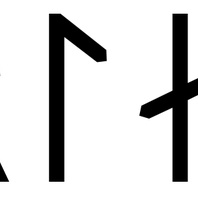
Viking Names
Thorlak
The male name Þorlákr is recorded in a number of Scandinavian runic inscriptions. It is rare in England but is possibly recorded in a minor name Thurlowbooth in Crich, Derbyshire. There is a further East Midlands connection, as its best-known bearer, the Icelandic bishop Þorlákr, studied in Lincoln in the twelfth century.
Read More
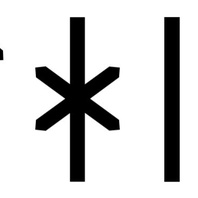
Viking Names
Bothild
Bóthildr, -hilda is a compound name with the first element being Bót- probably to be compared with Old Norse bót ‘remedy, improvement’. While some scholars believe this element is a loan from the continent or England, it is certain that in Scandinavia it was interpreted as bót. The second element of the name is Old Norse -hildr ‘battle’, Both forms of the name are fairly frequent in Norway after c 1300 and it is also found in place-names there. It was rare in Iceland but common in Denmark and also found in Sweden. Bóthildr, -hilda appears as the first element in the medieval field names Botildewellewong in Anston, West Yorkshire, and Botildehau in East Yorkshire. It is also possibly the first element in the field name Botilgarth in Fishlake, West Yorkshire. The name is also well-attested in medieval Yorkshire and Lincolnshire documents.
Read More
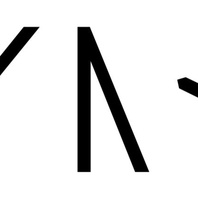
Viking Names
Asmund
Ásmundr is a very common name in Scandinavia throughout the Viking Age and later. It is recorded in medieval documents from both Lincolnshire and Yorkshire, in field-names in Lincolnshire, and in major names in North and West Yorkshire such as Osmotherley and Osmondthorpe. It is an Old Norse compound name. Its first element Ás- ‘a god’, frequent in Viking Age names, presumably refers to Old Norse deities such as Odin and Thor, though the latter name appears in its own right in many names, both male and female, while Odin is a very rare element in personal names. The second element-mundr is either Old West Norse ‘protector’ or Old Norse-Icelandic ‘gift’.
Read More
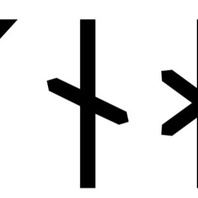
Viking Names
Hrafnhild
Hrafnhildr is recorded in a few instances in West Scandinavia (Norway and Iceland) and in the quasi-historical Icelandic text, Landnámabók ‘The Book of Settlements’ which recounts the settlement of Iceland. It is also attested in two field names in West Yorkshire. The personal name is an Old Norse compound, formed from Hrafn- , ‘raven’, combined with -hildr, ‘battle’.
Read More

Viking Names
Butti
Butti was a rare name in Scandinavia but is attested as an element in Norwegian place-names. It is also believed to be the first element of the place-name Budby, Nottinghamshire.
